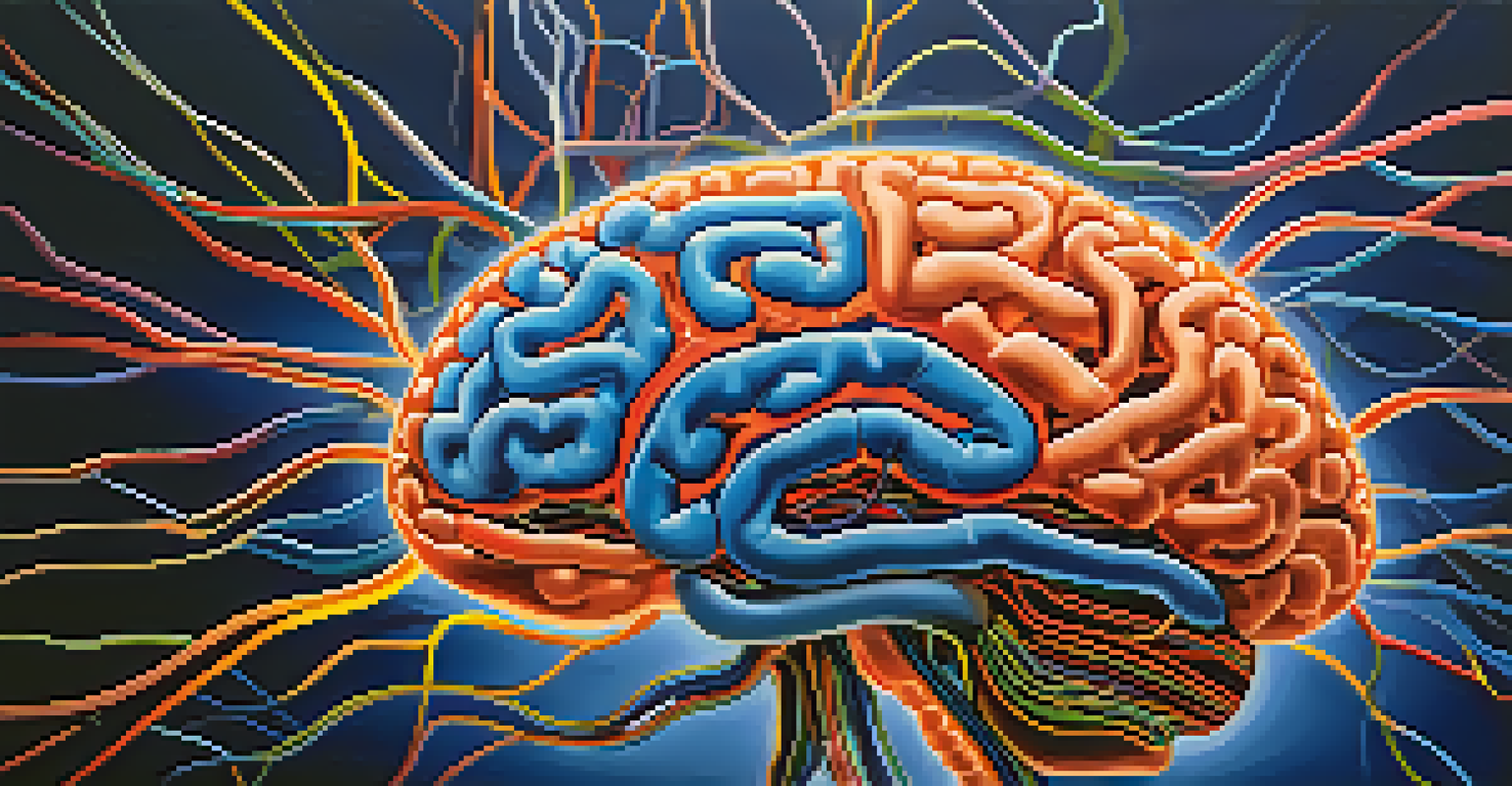How Entheogens Influence Cognitive Flexibility in Adults

Understanding Entheogens: A Brief Overview
Entheogens are substances that can induce altered states of consciousness, often used in spiritual or therapeutic contexts. Common examples include psilocybin mushrooms, ayahuasca, and LSD. These compounds have gained attention for their potential to promote mental well-being and cognitive flexibility.
The greatest discovery of my generation is that a human being can alter his life by altering his attitude.
Cognitive flexibility refers to the ability to adapt one's thinking and behavior in response to changing circumstances. It plays a crucial role in problem-solving, creativity, and overall mental agility. By altering perception and enhancing emotional insight, entheogens can help individuals break free from rigid thought patterns.
As we delve deeper into the effects of entheogens, it’s important to understand how they interact with the brain. Research indicates that these substances can promote neuroplasticity, the brain's ability to reorganize and form new connections, which is key to improving cognitive flexibility.
The Science Behind Cognitive Flexibility
Cognitive flexibility is primarily governed by the prefrontal cortex, the brain's command center for decision-making and social behavior. This area allows for the consideration of multiple perspectives and the ability to switch tasks efficiently. When cognitive flexibility is enhanced, individuals can navigate complex situations with greater ease.

The mechanism of action for entheogens involves the serotonin receptors in the brain, particularly the 5-HT2A receptor, which is linked to mood regulation and perception. When activated by these substances, these receptors can facilitate new neural pathways and enhance communication between different brain regions.
Entheogens Foster Cognitive Flexibility
Entheogens can enhance cognitive flexibility, allowing individuals to adapt their thinking and overcome rigid thought patterns.
Research has shown that individuals under the influence of entheogens often report heightened creativity and improved problem-solving skills. This suggests that these substances may temporarily boost cognitive flexibility, allowing people to approach challenges from new angles.
Entheogens and Their Impact on Mental Health
Mental health issues such as anxiety and depression can often lead to rigid thinking patterns. Entheogens have been studied for their therapeutic potential in treating these conditions by promoting cognitive flexibility. Patients often find that their perspectives shift, allowing for new coping strategies and emotional insights.
The mind is not a vessel to be filled, but a fire to be kindled.
For instance, studies involving psilocybin have shown promising results in reducing anxiety and improving emotional regulation. Participants report feeling more open and less confined by their previous thought patterns, which can be liberating in therapeutic settings.
By enhancing cognitive flexibility, entheogens can help individuals break free from negative cycles of thought, fostering a more adaptive mindset. This shift can be crucial for those seeking to improve their mental health and overall quality of life.
Personal Experiences: Anecdotes from Users
Many individuals who have experimented with entheogens share transformative experiences that reflect enhanced cognitive flexibility. For example, one user reported feeling a profound sense of connection to their surroundings, leading to insights about their relationships and life choices.
These personal stories often highlight how entheogens can facilitate a deeper understanding of oneself and one’s environment. People recount moments of clarity, where they can see problems from new perspectives, making it easier to generate innovative solutions.
Therapeutic Potential for Mental Health
Research indicates that entheogens may offer therapeutic benefits for mental health issues like anxiety and depression by promoting new perspectives.
Such anecdotes, while subjective, provide valuable insight into how entheogens can serve as tools for personal growth, encouraging users to embrace change and view challenges in a more constructive light.
Potential Risks and Considerations
While entheogens can offer benefits, it's essential to approach them with caution. Not everyone may experience positive outcomes; some individuals might encounter challenging or frightening experiences during their journeys. This highlights the importance of setting, intention, and the mental state of the user prior to consumption.
Moreover, individuals with a history of mental health disorders, particularly those prone to psychosis, should exercise extreme caution. Professional guidance and a supportive environment can mitigate risks and enhance the experience for those exploring entheogens for cognitive flexibility.
Understanding these risks is crucial for responsible use. Engaging in community discussions and seeking expert advice can help users make informed decisions about their entheogenic experiences.
Research and Future Directions
The field of entheogen research is rapidly evolving, with increasing interest in their potential therapeutic applications. Ongoing studies aim to unravel the complexities of how these substances affect cognitive flexibility and overall mental health. This research not only piques academic interest but also attracts attention from mental health practitioners.
Future studies will likely explore different types of entheogens, their specific mechanisms of action, and how they can be integrated into therapeutic settings. As findings emerge, we may see a shift in how these substances are perceived and utilized in mental health treatment.
Caution Needed with Entheogen Use
While entheogens can provide benefits, it's crucial to approach their use carefully, considering individual mental health histories and experiences.
The potential for entheogens to enhance cognitive flexibility opens up exciting avenues for research and therapeutic exploration, paving the way for innovative approaches to mental health care.
Conclusion: Embracing Cognitive Flexibility
In summary, entheogens hold promise for enhancing cognitive flexibility in adults, offering avenues for personal growth and mental health improvement. By promoting new ways of thinking and emotional insight, these substances can serve as powerful tools in navigating life's challenges.
However, it's essential to approach their use mindfully and with respect for the profound experiences they can catalyze. As research continues to unfold, we can expect to learn more about the interplay between entheogens and cognitive flexibility.

Ultimately, embracing cognitive flexibility, whether through entheogens or other means, can lead to a richer, more adaptive life. As we continue to explore this fascinating intersection of consciousness and cognition, we may discover even greater potential for personal transformation.